 4.9 out of 5 based on 4000 Students Rating
4.9 out of 5 based on 4000 Students Rating

The Global Institute of Cyber Security & Ethical Hacking (GICSEH) is located in Ghaziabad and serves as a beacon of excellence in cybersecurity education. With an emphasis on cyber security, GICSEH stands out as the preeminent institute that provides top-tier training programs that prepare students to flourish in the dynamic world of cybersecurity.
At GICSEH, students are immersed in a world-class training environment that prioritizes hands-on experience and real-world projects. The Cyber Security training at GICSEH is intended to offer students a complete skill set that includes everything from fundamentals to advanced concepts.
One of the most notable aspects of the GICSEH training program is its emphasis on job placement assistance. With a specialized placement staff and a plethora of options for students, GICSEH ensures that graduates are well-prepared to acquire positions in top MNCs and huge organizations. The institute's facilities and labs provide students with an ideal setting for honing their talents and gaining valuable experience. From initial courses to advanced training on real-world projects, GICSEH provides a complete curriculum for both new and seasoned workers.
Cybersecurity has emerged as a key problem for enterprises worldwide. The growth of cyberattacks and hacking risks has made ethical hacking a highly sought-after expertise, with white hat hackers playing an important role in protecting sensitive data and systems. The GICSEH Cyber Security training program in Ghaziabad provides students with the knowledge and skills which is required to battle cyber threats and protect sensitive information. By emphasizing network security, data recovery, intrusion detection, and phishing scams, the program ensures that students are well-prepared to face the difficulties of cybersecurity.
The GICSEH Cyber Security course, which focuses on responsible internet usage and cybersecurity best practices, prepares students to defend themselves against cybercrime and stay ahead of potential threats. Enrolling in this thorough program allows students to obtain vital insights into the world of cybersecurity and improve their skills for success in this quickly expanding sector.
The requirement for cybersecurity has increased in the last few years. With the rising digitalization of corporations, government agencies, and individuals, protecting sensitive information and data from cyber threats is more important than ever. The rising demand for cyber security solutions in Ghaziabad shows a growing awareness of the dangers presented by cyber-attacks and the need to protect digital assets.
One of the primary causes boosting demand for cyber security services in Ghaziabad is the increasing number of cyber assaults on enterprises and individuals in the region. Businesses and individuals are increasingly reliant on digital technology for communication, transactions, and data storage, making them great targets for cyber thieves looking to exploit system flaws. From ransomware attacks to phishing schemes, the threat landscape in Ghaziabad is rapidly changing, pushing businesses to invest in strong cyber security measures to protect their assets and reputations.
Furthermore, the regulatory environment in India is contributing significantly to the demand for cyber security services in Ghaziabad. With the introduction of data protection regulations like the Personal Data Protection Bill, enterprises are under increasing pressure to meet high data security and privacy standards. Failure to protect sensitive information can result in significant fines and reputational harm, forcing firms to treat cyber security as a strategic requirement rather than a discretionary investment.
Furthermore, the trend to remote work and online learning in the aftermath of the COVID-19 epidemic has highlighted the necessity for strong cyber security measures in Ghaziabad. As employees and students use corporate networks and educational materials from remote locations, cyber thieves' attack surface has grown, exposing firms to data breaches and other cyber dangers. In response, Ghaziabad businesses and educational institutions are strengthening their cyber security defenses to secure their networks and critical information from illegal access. The increased demand for cyber security services in Ghaziabad is also being driven by the digitization of important infrastructure sectors such as healthcare, finance, and transportation. As these businesses use IoT devices, cloud computing, and other emerging technologies to increase efficiency and service delivery, they face new cyber dangers that can disrupt operations and jeopardize citizen safety. To counter these risks, Ghaziabad-based firms are investing in advanced cyber security solutions such as threat intelligence, penetration testing, and incident response to strengthen their cyber defenses. The expansion of e-commerce platforms and online payment gateways in Ghaziabad has opened up new chances for cybercriminals to target naïve clients and steal their financial information.
In today's digital world, cyber security is critical. With cyber dangers on the rise and data breaches becoming more regular, individuals and businesses are recognizing the importance of protecting their digital assets and information from cyber-attacks. As a result, the demand for cyber security specialists is fast increasing, making it an appealing field for people seeking a fulfilling career. Learning cyber security in Ghaziabad provides numerous rewards, including attractive job prospects and the potential to make a genuine difference in protecting sensitive information. Let's look at the advantages of learning cyber security in Ghaziabad in greater detail.
1. Combating Cyber Threats: Cyber security training in Ghaziabad provides individuals with the knowledge and tools they need to effectively combat cyber threats. Understanding the tactics and procedures used by cyber thieves to access networks and steal sensitive information allows cyber security experts to design proactive strategies for securing systems and managing risks. Individuals may improve their threat detection, incident response, and vulnerability management abilities through hands-on training and real-world simulations, allowing them to protect enterprises from cyber attacks and safeguard sensitive data. Staying ahead of emerging cyber risks allows cyber security experts in Ghaziabad to make a significant difference in improving the security posture of businesses and government bodies.
2. Lucrative Job prospects: One of the most convincing reasons to study cyber security in Ghaziabad is the number of job prospects in this industry. As organizations and governments prioritize cyber security to secure their networks and data, the demand for skilled cyber security personnel grows. Individuals in Ghaziabad who acquire the requisite cyber security skills and certifications can open the door to a wide range of job prospects, from entry-level positions as security analysts to senior responsibilities as chief information security officers (CISO). With the appropriate education and experience, cyber security experts in Ghaziabad can command excellent wages and perks, making it a viable career path.
3. Contributing to National Security: In a digital age where cyber attacks can have far-reaching implications, mastering cyber security in Ghaziabad enables individuals to contribute to national security initiatives. Cyber security experts play an important role in preserving the nation's interests and countering cyber threats from hostile actors by enhancing the cyber defenses of critical infrastructure sectors, government agencies, and defense organizations. Individuals in Ghaziabad can use their cyber security talents to help prevent cyber espionage, sabotage, and other destructive actions that endanger national security by collaborating with law enforcement and intelligence agencies. Cyber security specialists in Ghaziabad can make a significant contribution to protecting the country's digital assets and sovereignty by improving the resilience of its cyber infrastructure.
4. Building a Rewarding profession: Learning cyber security in Ghaziabad can lead to a rewarding profession with opportunities for growth, progress, and personal development. Cyber security specialists, whether they work in the private sector, government organizations, or consultancy businesses, are crucial to securing digital assets, preserving sensitive information, and limiting cyber hazards. Individuals in Ghaziabad who pursue a successful career in cyber security can positively impact the organizations they serve, earn recognition for their knowledge, and contribute to a safer and more secure digital ecosystem. Individuals with a good foundation in cyber security might follow a variety of professional pathways that are relevant to their interests and aspirations, such as ethical hacking and penetration testing, security architecture, and risk management.
5. Continuous Learning and Growth: Learning cyber security in Ghaziabad is a dynamic and growing activity that provides opportunities for ongoing learning and development. As cyber threats grow and new technologies emerge, cyber security professionals must stay current on the newest trends, tools, and best practices to be effective in their work. Individuals in Ghaziabad can stay up to date on cyber security by seeking advanced certifications, attending professional conferences, and engaging in hands-on training programs. The field of cyber security is continually expanding, bringing new problems and possibilities for professionals to improve their abilities and make a significant difference in the protection of digital assets.
Learning cyber security in Ghaziabad has numerous rewards, ranging from
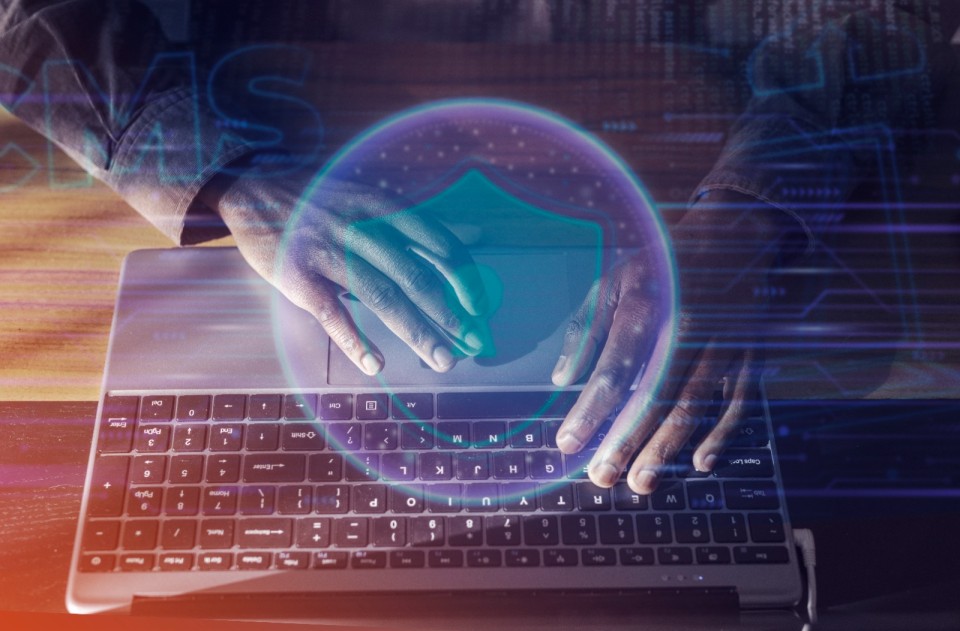
lucrative work prospects to the capacity to effectively combat cyber threats and contribute to national security initiatives. Individuals in Ghaziabad can develop a satisfying career in cyber security by earning the essential skills, certifications, and experience. This will help them to make a genuine contribution to preserving sensitive information and digital assets. With the growing demand for cyber security specialists, now is a great moment to start a career in cyber security and take advantage of the exciting opportunities that exist in this dynamic and essential industry.
In today's digital landscape, where cyber threats are continually growing and getting more complex, the demand for Learn cybersecurity specialists has never been higher. Ghaziabad, a thriving city in Uttar Pradesh, is home to an increasing number of individuals and businesses looking to improve their cybersecurity capabilities. To address this need, Ghaziabad offers a wide range of cybersecurity courses geared toward beginners, advanced learners, and seasoned professionals. Let's look at the top ten cyber security courses in Ghaziabad that provide thorough instruction and practical skill development in this crucial subject.
1. Certified Information Systems Security Professional (CISSP): The CISSP certification is one of the most widely recognized certificates in the world of cybersecurity. This course, provided by (ISC), covers a wide range of topics, including security and risk management, asset security, communication and network security, and more. CISSP certification holders are well-equipped to design, execute, and manage successful cybersecurity programs, making them an excellent alternative for individuals wishing to advance their careers in Ghaziabad.
2. The Certified Information Security Manager (CISM): This certification is intended for people who want to be information security managers and oversee the development and implementation of cyber security strategies in their organizations. This course covers subjects such as information risk management, governance and compliance, incident response, and security program building. Professionals in Ghaziabad who get the CISM certification can demonstrate their knowledge in information security management and enhance their careers in leadership positions.
3. Certified Ethical Hacker (CEH): The CEH certification is intended for anyone who wants to comprehend the hacker mindset and learn how to find system vulnerabilities before harmful actors do. This course covers ethical hacking, penetration testing, and network security foundations. Individuals in Ghaziabad who obtain the CEH certification can demonstrate their knowledge of ethical hacking and improve their abilities to secure networks and systems.
4. CompTIA Security+: The CompTIA Security+ certification is a fundamental course that covers critical cyber security principles such as network security, compliance and operational security, threats and vulnerabilities, and more. This course is excellent for beginners and entry-level professionals who want to lay a firm foundation in cyber security. Individuals in Ghaziabad can jumpstart their careers in cyber security and seek more advanced certifications by obtaining the CompTIA Security+ certification.
5. Certified Cloud Security Professional (CCSP): The CCSP certification is excellent for cloud security professionals or those interested in entering this specialized industry. This course covers cloud computing fundamentals, cloud security architecture, and data security, as well as cloud security-related legal and regulatory challenges. Individuals in Ghaziabad who get the CCSP certification can confirm their skill in securing cloud settings and data, both of which are becoming increasingly important in today's digital ecosystem.
6. The Certified Secure Computer User (CSCU): This certification is designed for anyone who wants to improve their understanding of cyber security best practices and concepts. This course discusses internet security, social engineering, email security, and online privacy. Individuals in Ghaziabad who complete the CSCU certification can improve their cyber hygiene practices and defend themselves from prevalent cyber risks in their personal and professional lives.
7. Offensive Security Certified Professional (OSCP): The OSCP certification is a hands-on course that teaches real skills in penetration testing and ethical hacking. This course requires students to demonstrate their skills to discover and exploit system and network vulnerabilities ethically. By obtaining the OSCP certification, learners in Ghaziabad can improve their technical abilities in offensive security and gain proficiency in conducting penetration tests.
8. Certified Information Systems Auditor (CISA): The CISA certification is intended for individuals who specialize in information system auditing, control, and assurance (ISA). This course covers information system audit methods, IT governance and management, information system acquisition, development, and implementation, among other topics. Professionals in Ghaziabad who obtain the CISA certification can demonstrate their expertise in auditing and analyzing information systems to ensure compliance and security.
9. Certified Information Privacy Professional (CIPP): The CIPP certification is intended for individuals who work with data privacy and protection. This course discusses privacy laws and regulations, data governance, information security, and privacy compliance. By obtaining the CIPP certification, professionals in Ghaziabad may demonstrate their understanding of data privacy best practices and effectively guide enterprises through the complicated environment of privacy rules.
10. Certified Incident Handler (GCIH): This qualification is intended for individuals who specialize in incident handling and response. This course discusses incident handling procedures, detection and response techniques, malware analysis, and network forensics. Obtaining the GCIH certification allows professionals in Ghaziabad to demonstrate their competence in efficiently monitoring and responding to cybersecurity incidents, assisting enterprises in mitigating the impact of security breaches.

The top ten cyber security courses in Ghaziabad provide a wide variety of training programs and certifications to meet the demands of individuals and companies looking to improve their cyber security skills and knowledge. Whether you are a beginner looking to get into cyber security or a seasoned professional looking to advance your career, these courses provide valuable insights, practical skill development, and industry-recognized certifications that will help you succeed in the ever-changing world of cyber security. Individuals in Ghaziabad who enroll in these courses and have the requisite experience can position themselves as trusted cybersecurity professionals, making a significant contribution to the security of digital assets and information.
Cybersecurity is the activity of defending systems, networks, and programs against digital threats. These intrusions are typically intended to access, change, or delete sensitive information; extract money from users via ransomware; or disrupt normal corporate activities. Implementing effective cybersecurity safeguards is especially difficult today, as there are more devices than humans, and attackers are becoming more creative.
In today's interconnected society, everyone benefits from improved cyber defense strategies. Everyone relies on critical infrastructure including power plants, hospitals, and financial institutions. Securing these and other institutions is critical to keeping our society running. Everyone benefits from the efforts of cyber threat researchers, such as the 250-person team at Talos that investigates new and emerging threats and cyber assault techniques. They identify new vulnerabilities, educate the public about the importance of cybersecurity, and improve open-source tools. Their efforts make the Internet safer for all.
Regular security audits and vulnerability assessments are also performed to discover and resolve possible system flaws before they are exploited by attackers. One of the fundamental principles of cyber security is defense in depth, which entails layering security controls to provide several lines of defense against cyber threats. This multi-layered approach reduces risks and the effect of security incidents by guaranteeing that even if one layer is compromised, other measures are in place to protect important assets.
1. Develop a deeper understanding of programming and apply it to industry projects and applications.
2. Learn to develop, design, test, support, and deploy desktop, bespoke web, and mobile apps.
3. Improve testing and maintenance operations and processes.
4. Improved understanding of the web development framework. This framework allows you to quickly develop dynamic webpages.
5. Develop important applications for cyber security.
6. Increased opportunities to work for leading software firms like Infosys, Wipro, Amazon, TCS, IBM, and more.
1. Network security entails installing hardware and software to protect a computer network from unauthorized access, intruders, attacks, disruption, and misuse. This security enables an organization to defend its assets from both external and internal threats. Application security entails safeguarding software and devices from potential threats. This protection can be achieved by regularly updating the apps to maintain their security against threats. Before deploying a program or device, successful security begins with the design stage, which includes source code development, validation, threat modeling, and so on. Information or data security is putting in place a strong data storage system to ensure the integrity and privacy of data while it is stored and in transit.
2. Identity management refers to the process of identifying each individual's level of access inside an organization.
3. Operational security is concerned with processing and making decisions about how to handle and secure digital assets.
4. Mobile security entails protecting the organizational and personal data held on mobile devices such as cell phones, PCs, tablets, and other similar devices from various harmful attacks. These hazards include illegal access, device loss or theft, malware, and so on.
5. Cloud security is concerned with protecting information kept in the digital environment or cloud infrastructures for a business. It employs a variety of cloud service providers, including AWS, Azure, and Google, to provide security against a wide range of threats.
6. Disaster Recovery and Business Continuity Planning: It addresses the processes, monitoring, alarms, and plans for how an organization responds when hostile action results in the loss of operations or data. Its policies require that operations be resumed at the same level as before the calamity.
7. User Education: It addresses the processes, monitoring, alerts, and plans for how an organization responds when malicious conduct results in the loss of operations or data.
1. Cybercrime refers to any illicit conduct involving a computer, device, or network.
Cybercrime is classified into three types: computer-assisted crimes, crimes in which the computer itself is a target, and crimes in which the computer is incidental rather than directly involved. Below is a list of common cyber threats: Cyberterrorism is a politically motivated attack on computers and information technology that aims to cause harm and broad societal disruption.
2. Malware includes ransomware, spyware, viruses, and worms. It can install malicious software, prevent access to your computer resources, interrupt the system, and discreetly send information from your data storage.
3. Trojans: Similar to the famed Trojan Horse of mythology, this exploit deceives users into believing they are accessing a harmless file. Instead, once installed, the trojan targets the system, usually by creating a backdoor that allows thieves to gain access.
4. Botnets: This particularly nasty attack entails large-scale cyberattacks carried out by remotely controlled malware-infected devices. Consider a network of computers controlled by a single cybercriminal. Even worse, infected machines become part of the botnet system.
5. Adware: This danger is a type of malware. It is sometimes referred to as advertisement-supported software. The adware virus is a potentially unwanted program (PUP) that installs itself without your consent and generates annoying web adverts. SQL injection is a Structured Query Language attack that inserts malicious code into a SQL server.
6. Phishing: Hackers send fraudulent communications, often e-mail, to trick the recipient into opening it and following instructions that typically request personal information. Some phishing campaigns additionally include malware.
7. Man-in-the-middle (MITM) attacks occur when hackers inject themselves into a two-person online transaction. Once inside, hackers can sift and steal the desired data. MITM attacks are frequently conducted on unsecured public Wi-Fi networks.
8. Denial of Service is a cyber assault that floods a network or computer with an excessive volume of "handshake" activities, effectively overloading the system and rendering it incapable of responding to user requests.
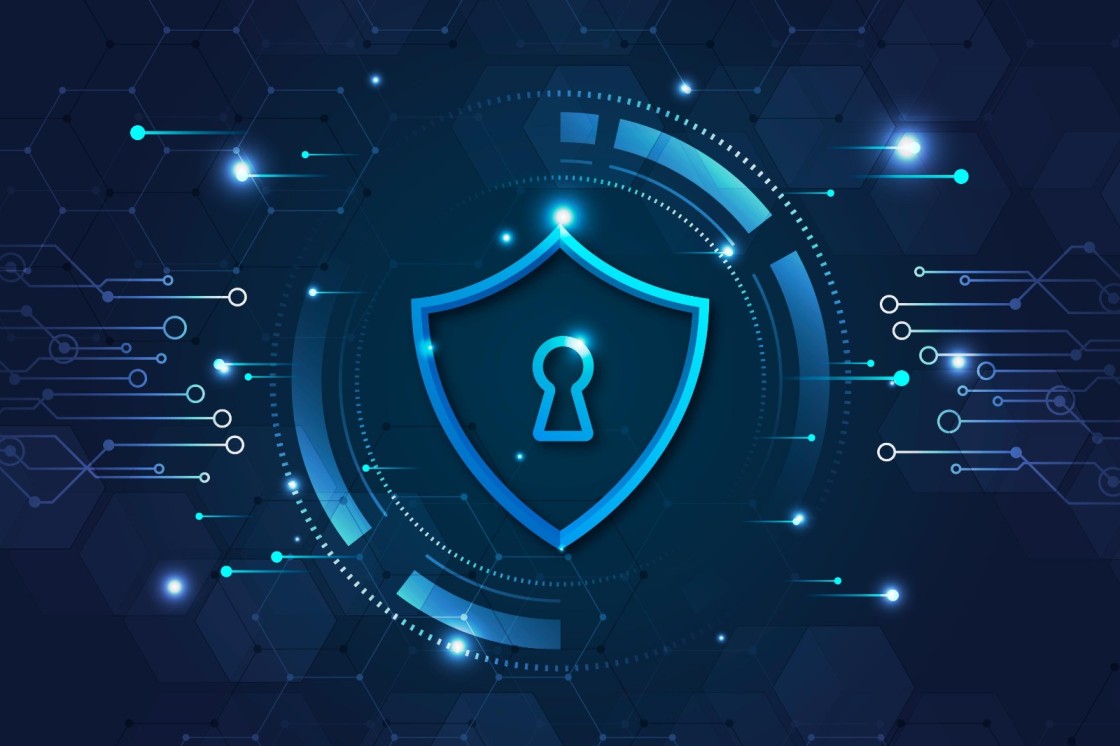
In today's digital world, the value of cybersecurity for enterprises cannot be emphasized. As we become more reliant on technology for day-to-day operations, data storage, and communication, the potential for cyber threats grows. Cybersecurity refers to the techniques, technologies, and processes that secure networks, devices, programs, and data from attacks, damage, or unauthorized access. As organizations evolve in a digitally linked world, it is critical to implement effective cybersecurity safeguards to protect sensitive information, preserve customer trust, and ensure operational continuity.
1. Protecting Sensitive Data: One of the key reasons firms should engage in cybersecurity is to secure sensitive data. This includes consumer data, financial records, and valuable intellectual property. A cyberattack resulting in a data breach can have serious implications, including financial losses and reputational damage.
2. Maintaining business operations: A cyberattack can affect your business operations, resulting in downtime and loss of production. Ensuring that your organization has a strong cybersecurity policy in place helps to ensure the continuity of operations and reduces the possibility of costly disruptions.
3. Regulatory Compliance: Businesses are subject to several rules that require them to maintain strict security standards to secure their customers' data. Non-compliance with these regulations can result in significant fines and penalties. Investing in cybersecurity enables organizations to comply with these requirements and avoid potential legal complications.
4. Building Trust with Customers: Customers are more aware of the necessity of data security. Businesses that demonstrate a strong commitment to cybersecurity can earn the trust of their customers, resulting in improved loyalty and long-term connections.
5. Staying ahead of the competition: Companies that prioritize cybersecurity are better positioned to outperform their competitors in the market. Businesses can focus on their core skills and reduce the risk of cyber threats by deploying strong security measures.
One of the key reasons why cybersecurity is becoming more important for businesses is the increasing frequency and sophistication of cyber attacks. Cybercriminals are continually devising new ways to attack weaknesses in systems and networks, posing considerable threats to businesses of all kinds. Ransomware attacks, phishing scams, and data breaches can all cause significant financial and reputational damage. As a result, organizations must invest proactively in cybersecurity solutions to limit risks and safeguard their assets.
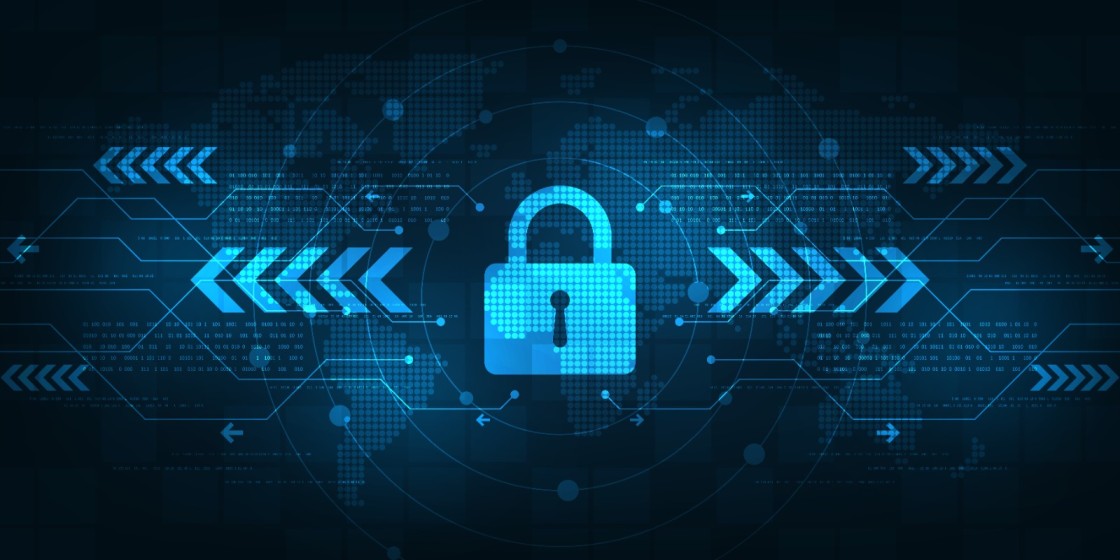
The enactment of stringent data protection rules, such as the General Data Protection Regulation (GDPR) in the European Union and the California Consumer Privacy Act (CCPA) in the United States, has rendered cybersecurity a legal need for organizations. Noncompliance with these requirements can result in significant fines and legal consequences, emphasizing the significance of implementing strong cybersecurity procedures to protect customer data and privacy. Prioritizing cybersecurity allows organizations to demonstrate their dedication to regulatory compliance and ethical data handling, fostering trust with consumers and stakeholders.
The transition to remote work arrangements and services hosted in the cloud has increased the attack surface of cyber attacks, making cybersecurity even more important for enterprises. The COVID-19 pandemic has pushed the adoption of remote work models, leading to a rise in cyber attacks against remote employees with vulnerable endpoints. Businesses that embrace digital transformation projects and cloud computing services must ensure that appropriate cybersecurity measures are in place to secure sensitive data, prevent unauthorized access, and reduce the risks associated with remote work environments.
In addition to external threats, companies must handle internal cybersecurity risks such as employee irresponsibility, human mistakes, and threats from within. Training staff on cybersecurity standards, creating access restrictions, and conducting regular security audits are all necessary actions to improve the organization's security posture from the inside. Businesses can empower their staff to be proactive defenders against potential cyber-attacks by cultivating a culture of cybersecurity awareness and accountability.
The interconnectedness of supply chains and business ecosystems highlights the need for cybersecurity to ensure a robust and secure company environment. A breach in one organization's network can have far-reaching consequences for its partners, suppliers, and customers, emphasizing the importance of collaborative cybersecurity measures throughout the ecosystem. Businesses may strengthen their ecosystem's overall cybersecurity posture by adopting cybersecurity protocols, exchanging threat intelligence, and conducting regular security assessments.
Another important part of cybersecurity for firms is the protection of trade secrets, intellectual property, and confidential data. In today's highly competitive environment, companies rely on innovation and digital assets to establish a competitive advantage and generate growth. Protecting these precious assets against cyber threats, corporate espionage, and intellectual property theft is critical to ensuring the organization's longevity and competitive advantage. Encryption, access controls, and data loss prevention solutions can help organizations protect their intellectual property and preserve a competitive advantage in the digital market.
The growing interconnection of operational technology (OT) and industrial control systems (ICS) has made vital infrastructure sectors including power, medical care, and transport attractive targets for cyber attacks. Disruption or compromise of these systems can have serious ramifications for the safety of the public, financial stability, and national security. As a result, firms operating in the critical infrastructure industry must prioritize cybersecurity resilience to protect key services, avoid downtime, and limit the risks of cyber disasters that could have disastrous consequences.
The increasing importance of cybersecurity for businesses is a result of the changing threat landscape, legal requirements, technology improvements, and networked corporate settings. Businesses that invest in cybersecurity solutions can protect their assets, and private data, maintain compliance with regulations, and foster trust with consumers and stakeholders. As cyber threats evolve, firms must take a proactive and comprehensive strategy for cybersecurity, which includes risk management, emergency planning, staff training, and engagement with industry partners. Finally, cybersecurity is more than just a technical consideration; it is a strategic requirement that supports the resilience, credibility, and long-term viability of modern enterprises in an environment that is becoming increasingly digital.
A cybersecurity degree can lead to a variety of work prospects. Some of the possibilities listed below will require a combination of experience, credentials, and higher degrees of education (Master's or PhD). Here are some common employment paths for cybersecurity graduates:
1. Cybersecurity Analyst: Cybersecurity analysts monitor and analyze security threats to an organization's IT infrastructure. They identify weaknesses, analyze security issues, and put in place security measures to prevent cyber assaults. Cybersecurity analysts are responsible for detecting and managing dangers, performing security evaluations, and assuring compliance with cybersecurity rules and laws.
2. Penetration Tester (Ethical Hacker): Penetration testers, also known as ethical hackers are cybersecurity specialists who test the security of networks, applications, and systems by simulating cyber assaults. Their responsibilities include detecting vulnerabilities, exploiting gaps, and making recommendations to strengthen security defenses. Penetration testers assist organizations in strengthening their security posture, conducting vulnerability assessments, and evaluating the efficiency of security controls. They must have an in-depth knowledge of hacking methods, cybersecurity structures, and methods for risk evaluation to successfully detect and address security gaps.
3. Security Consultant: Security consultants advise organizations on best practices for cybersecurity, risk management, and compliance. They collaborate extensively with clients to evaluate their security requirements, create security strategies, and execute security solutions that are suited to their specific business objectives. Security consultants can specialize in the security of networks, cloud security, handling incidents, and compliance auditing. They must possess great communication skills, knowledge of technology, and the ability to convert complicated security principles into actionable suggestions for clients.
4. Security Architect: Security architects create and execute secure IT infrastructures, systems as a whole, and applications to safeguard against cyber threats. They create security frameworks, establish safety controls, and make sure security measures are consistent with business needs and industry standards. Security architects work together with IT teams, stakeholders, and suppliers to integrate security into the organization's technological environment. They must have a thorough understanding of cybersecurity principles, architectural design, and risk management to provide robust security solutions that efficiently satisfy the organization's security requirements.
5. Incident Responder: Incident responders are cybersecurity experts who work to detect, respond to, and mitigate security issues within an organization. They play an important role in detecting security breaches, mitigating threats, and recovering normal operations following a cyberattack. To mitigate the consequences of security breaches, incident responders analyze security occurrences, coordinate response efforts, and create incident response plans. They must have strong problem-solving abilities, technical understanding, and the capacity to operate under pressure to effectively handle and address security problems promptly.
6. Security Operations Center (SOC) Analyst: Security Operations Centre (SOC) Analysts are responsible for monitoring and analyzing security events and alerts to discover and respond to potential safety hazards. They work in a Security Operations Centre (SOC) to constantly monitor the organization's IT environment, analyze security alerts, and escalate situations as necessary. SOC analysts employ security information and event management (SIEM) tools, intrusion detection systems, and threat intelligence feeds to detect and mitigate security risks. To properly track and respond to security problems in real-time, they must have excellent analytical abilities, pay attention to detail, and be able to work in a fast-paced workplace.
7. Cybersecurity Manager/Director: Cybersecurity managers and directors are in charge of an organization's cybersecurity program, policies, and activities to secure digital assets and information. They are in charge of leading cybersecurity teams, designing security strategies, and connecting security activities with business goals. Cybersecurity managers and directors work with senior leadership, IT teams, and stakeholders to establish security controls, conduct risk assessments, and maintain compliance with cybersecurity standards. To successfully lead and manage the organization's cybersecurity program, they must possess strong leadership qualities, a strategic vision, and a thorough understanding of cybersecurity governance.
8. Forensic Analyst: Forensic analysts investigate cyber crimes, security issues, and data breaches to gather and analyze digital evidence for legal purposes. They use forensic tools and procedures to recreate cyber attacks, track down offenders, and give evidence for criminal inquiries or litigation. Forensic analysts work alongside law enforcement agencies, legal teams, and incident response teams to carry out forensic inquiries, document findings, and present evidence in court. They must be well-versed in digital forensics, data recovery techniques, and chain of custody processes to carry out thorough and enforceable investigations.
9. Security Compliance Analyst: Security compliance analysts ensure that an organization's security methods and controls meet laws and regulations, industry norms, and internal policies. They carry out security audits, evaluate security measures, and create compliance frameworks to fulfill legal and regulatory requirements. Security compliance analysts collaborate with IT teams, auditing firms, and legal counsel to interpret security rules, implement compliance procedures, and report on the organization's security standards. They must have a thorough awareness of cybersecurity rules, auditing processes, and risk management concepts to verify that the organization meets all applicable security criteria.
10. Cybersecurity Educator/Trainer: Cybersecurity educators and trainers educate and train individuals and organizations on cybersecurity principles, standards of excellence, and new risks. They produce training programs, workshops, and instructional materials to improve cybersecurity awareness and encourage security. Cybersecurity educators and trainers play an important role in fostering a cybersecurity-conscious culture inside organizations, educational institutions, and the general public. Strong communication skills, technical understanding, and a passion for cybersecurity education are required to properly transmit complex security ideas and empower users to protect themselves from cyber dangers.
Lastly, a cybersecurity degree provides a diverse range of job prospects in the dynamic and expanding subject of cybersecurity. Whether you are interested in technical positions like penetration testing and incident response, strategic roles like security consulting and architecture, or educational roles like cybersecurity training, there are numerous options to choose from based on your interests, talents, and career goals. Pursuing a profession in cybersecurity allows you to play an important part in defending organizations, persons, and vital infrastructure from cyber threats, resulting in a safer and more secure digital world. A cybersecurity degree offers a wide array of career opportunities, including technical roles like penetration testing and strategic positions like security consulting.
To get a detailed overview visit the best cybersecurity course in India.
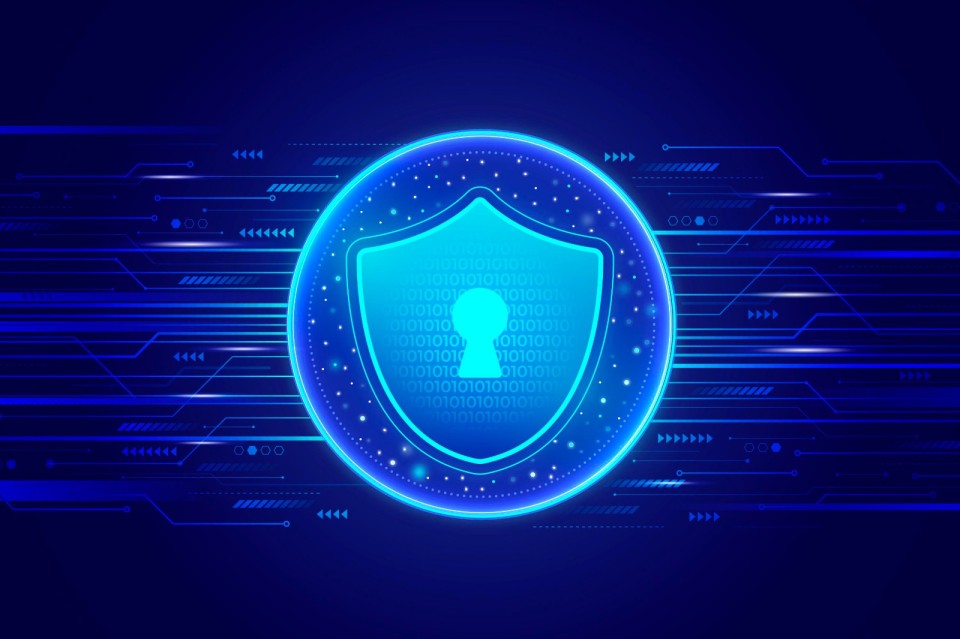
Ghaziabad, a fast-rising city in India's National Capital Region (NCR), has experienced tremendous growth in information technology (IT) infrastructure in recent years. As the city embraces digitalization and technological breakthroughs in a variety of areas, cybersecurity plays an increasingly important role in protecting Ghaziabad's IT infrastructure. Protecting vital systems, networks, and data from cyber threats is critical for ensuring the reliability, honesty, and privacy of digital assets in Ghaziabad. Let's look at some of the most important parts of cybersecurity's involvement in protecting Ghaziabad's IT infrastructure.
1. Government System Protection: As part of the NCR, Ghaziabad is home to several governmental workplaces, organizations, and administrative organizations that rely on IT infrastructure for effective governance and delivery of services. Securing government networks from cyber threats is critical for protecting sensitive data, ensuring continuous public services, and preserving trust in government processes. Cybersecurity measures like as network monitoring, access limits, encrypting, and regular security audits are critical in preventing cyber attacks, breaches of information, and unauthorized access to Ghaziabad government IT systems.
2. Securing key Infrastructure: Ghaziabad's IT infrastructure includes key systems and services that are required for the city to function, like as electricity grids, transportation networks, water distribution networks, and healthcare facilities. Protecting these key infrastructure parts from cyber threats is critical for avoiding disruptions, ensuring public safety, and sustaining essential services. Implementing cybersecurity measures such as intrusion detection systems, incident response plans, and security assessments can help reduce the danger of cyber assaults on Ghaziabad's vital infrastructure.
3. Data Protection and Privacy: As services become more digital and enormous amounts of data are collected, maintaining the privacy and security of data is a major problem for Ghaziabad's information technology infrastructure. Cybersecurity protects personal information, financial data, and sensitive records from unauthorized access, data breaches, and cyber theft. Compliance with data protection rules such as the Personal Data Protection Bill and the Information Technology Act is critical to protecting individuals' privacy rights and ensuring the integrity of data in Ghaziabad's IT systems.
4. Preventing Cyber Attacks and Ransomware: The danger landscape for cyber attacks, including as ransomware, malware, phishing, and denial-of-service attacks, is a significant threat to Ghaziabad's IT infrastructure. Firewalls, antivirus software, email filtering, and staff training are all critical components of efficient cyber threat prevention, detection, and response. Establishing a defense against ransomware attacks, which can encrypt data and impair operations, is crucial for ensuring IT service continuity and security in Ghaziabad.
5. Improving Incident Response Capabilities: In the event of a cybersecurity incident or data theft, having strong incident response capabilities is critical for limiting the effect, mitigating risks, and recovering IT systems in Ghaziabad. Establishing a Security Operations Centre (SOC), performing regular security drills, and building incident response plans are all critical components of a successful cybersecurity strategy. Early identification, investigation, and response to security problems can help reduce downtime, financial losses, and reputational harm to Ghaziabad's IT infrastructure.
6. Securing Smart City Initiatives: Ghaziabad, like many other Indian cities, is transforming into a smart city by combining technologies and data-driven approaches to improve urban services and quality of life. Secure smart city efforts, which include devices that are interconnected, sensors, and IoT (Internet of Things) systems, necessitate strong cybersecurity measures to protect against cyber threats and weaknesses. Implementing secure network protocols, encryption, and device authentication processes is critical to maintaining the integrity and security of Ghaziabad's smart city infrastructure.
7. Cybersecurity Awareness and Training: Promoting cybersecurity awareness and training for IT professionals, government employees, businesses, and Ghaziabad citizens is critical to developing a cyber-resilient community. Training individuals on the latest techniques for password security, phishing awareness, secure surfing habits, and incident reporting can help avoid cyber assaults and improve the overall cybersecurity posture of Ghaziabad's IT infrastructure. Collaboration with cybersecurity professionals, industrial partners, and educational institutions can help to raise cybersecurity awareness and expertise in the city.
As technology grows, the complexity also grows, increasing cyber threats. The complexities in cyber threats led to the prominent importance of ethical hacking in today's cybersecurity landscape.
Lastly, cybersecurity plays a multidimensional role in securing Ghaziabad's IT infrastructure, which is critical to the city's digital evolution, economic prosperity, and societal well-being. Ghaziabad can safeguard its vital systems, data assets, and electronic services from emerging cyber dangers by investing in cybersecurity measures, increasing cyber threat resilience, and cultivating a cybersecurity awareness culture. Collaboration among government agencies, private sector organizations, cybersecurity professionals, and the community is essential for maintaining a secure and resilient IT environment in Ghaziabad, paving the way for a digitally secure and vibrant city in the future.
In the modern era, where technology is critical to corporate operations, the necessity of cyber security can't be stressed. With the rapid digitization of processes and a growing amount of sensitive data kept and communicated online, organizations are confronted with a developing danger landscape that necessitates specialized skills to effectively manage and mitigate risk.
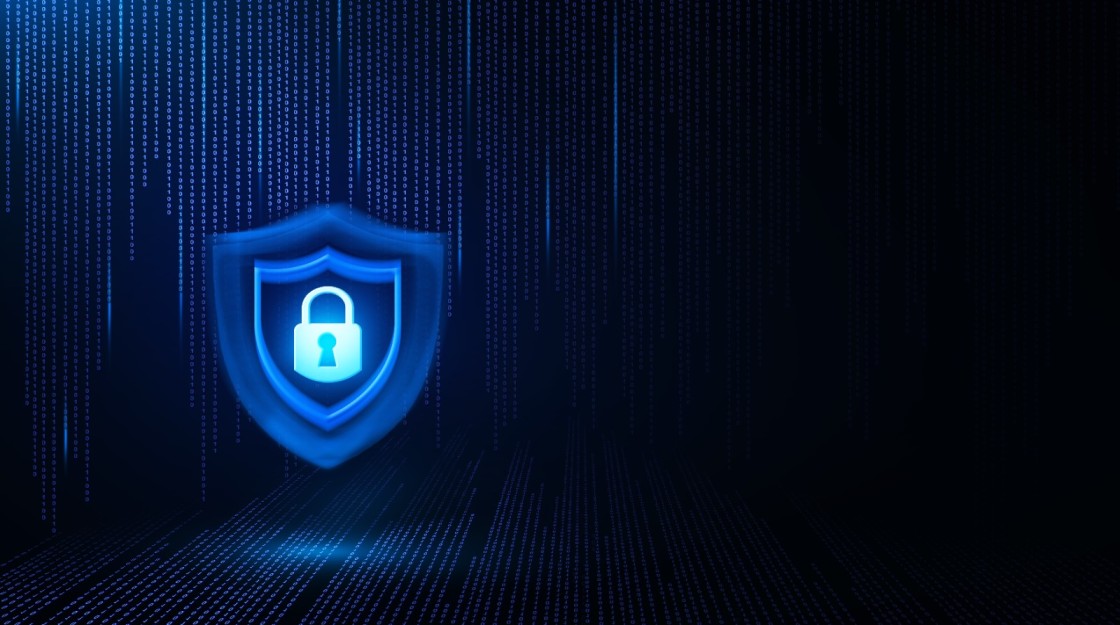
This has resulted in a high demand for cyber security specialists in India's corporate sector, as businesses recognize the crucial need to secure their assets, reputation, and customer trust against cyber threats.
The surge in cyber attacks against organizations of all kinds and industries is one of the key drivers of India's expanding demand for cyber security specialists. Cyber thieves are growing more creative in their strategies, employing sophisticated techniques such as ransomware, phishing scams, and social engineering to access systems and steal important data. As a result, organizations are allocating more money to bolstering their cyber defenses and hiring qualified individuals capable of proactively identifying and responding to security threats.
Furthermore, the legislative landscape for privacy and security of data is fast changing, with laws like the Personal Data Protection Bill and the General Data Protection Regulation (GDPR) putting more pressure on organizations to secure personal information. Failure to comply with these requirements can result in serious financial penalties and reputational harm, emphasizing the importance of firms having strong cyber security measures in place as well as professionals who can assure compliance with data privacy legislation.
Another factor driving the demand for cyber security professionals in India is the growing use of cloud computing, Internet of Things (IoT) devices, and other newly developed technologies in corporate settings. While these advancements provide various benefits in terms of efficiency and scalability, they also create new security threats that must be addressed with specialized knowledge. Cybersecurity specialists play an important role in analyzing and addressing the risks associated with these advancements, allowing organizations to maximize their benefits while minimizing potential hazards.
In addition, the increasing digital transformation of Indian organizations, fueled by factors such as remote work arrangements, online transactions, and digital marketing techniques, has increased the attack surface for cybercriminals. This change to a more linked and technologically driven business world has emphasized the need for cyber security experts who can respond to changing threats and protect organizations digital assets across multiple platforms and endpoints.
In response to the growing demand for cyber security experts, Indian academic institutions and training centers, such as The Global Institute of Cyber Security & Ethical Hacking (GICSEH), are providing specialized courses and certifications to equip professionals with the knowledge and skills needed to excel in the field of cyber security. By delivering hands-on training, industry insights, and practical experience, these educational programs are developing an emerging cadre of cyber security experts to tackle the growing obstacles of the digital era and protect India's corporate sector from cyber threats.
Ultimately, the increasing demand for cyber security experts in India's corporate sector highlights the critical role that these professionals play in protecting organizations from cyber threats, ensuring data protection and regulatory compliance, and facilitating the secure adoption of emerging technologies. As organizations continue to prioritize cyber security as a strategic imperative, the demand for competent experts in this field is projected to increase, providing chances for individuals to develop lucrative careers in cyber security while also contributing to the resilience of India's digital ecosystem.